Josef Lavos Die Jungfrau von Orleans” by Josef Lavos (1807–1848)
Image Courtesy of Wikimedia Commons
Mini-Muse Monday-How Do You Like Your Heroines?
Last week we talked about the types of heroes that will send our pulses cavorting, so I thought it only fair to discuss heroines this week.
I’ve heard, over and over, that modern readers, even of historical romances, like strong, independent heroines. That’s all well and good, and I’m not denying there have always been intrepid women, but sometimes I feel like an author has taken a contemporary woman and plopped her in the middle of another century.
As I’ve said in a couple of workshops I’ve presented, I half expect her to whip a tampon from her reticule or pop a piece of bubble gum into her mouth. An authentic heroine has to be believable in the setting the author places her too.
I know I’ve gotten frustrated more than once when a reader doesn’t understand the constraints women of previous eras were under. Today, what we take for granted was truly the exception for most women until at least the mid 19th century, for some even later.
Just as there are typical romance heroes, so too there are the standard heroine types:
Miss perfect-the person everyone hates because she is truly great at everything and nice to boot.
The free spirit
The waif or lost soul
The intellect (bluestocking)
The chief (boss)
The self-sacrificing nurturer
The feisty-strong-don’t-tell-me-what-to-do-rebel
The crusader
Most heroines are a combination of types with one or two typically being more predominate than the others.
I like a woman who is strong, capable, an intelligent, but also not afraid to be soft, feminine, and doesn’t feel threatened when a man wants to take care of her. I flat out don’t like foul-mouthed, aggressive heroines with attitudes whose only use for men is in the bedroom.
What kinds of heroines do you like? Which ones get under your skin? Which kinds do we see too much of and which ones would you like to see more of?

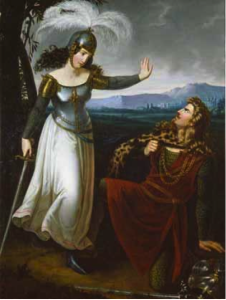

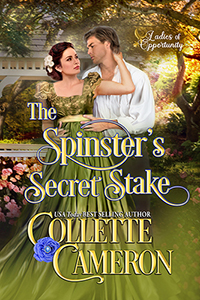
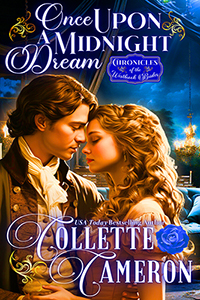
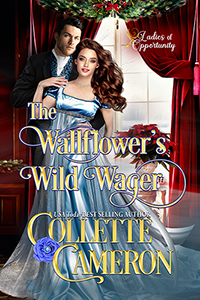


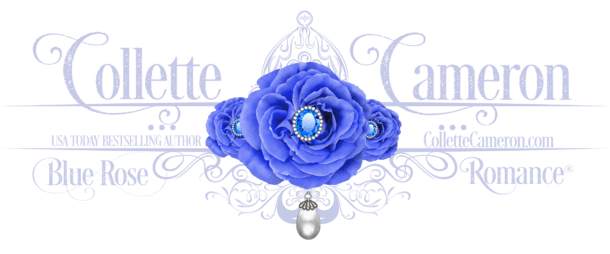
I like strong women, but they have to have a heart, too.
I was watching The Last Kingdom last night with my daughter and Brita is exactly like that. She wields an ax, dresses like a man, but she’s tender too.
I agree Collette- I like a strong heroine with softness.
Another heroine I don’t like too well is the spoiled princess. I don’t mind someone having a privileged life, but when she expects others to pamper her or expects to have her own way because of her status, I want to slap her. That’s not the same as a woman who knows her own mind and whose decisions aren’t always the best or perhaps are self-centered at times. That I get.
At the moment I’m struggling with writing an angry heroine who probably fits into the rebel category. She’s rude and obnoxious and has more or less forgotten how to be pleasant with all but a few people. I’m worried she’ll be too unlikable, but underneath her difficult exterior she’s really very solid and caring. I guess I have to show her niceness as well so the readers won’t hate her…
And character growth, Barbara. I read a story with a heroine I didn’t much care for a bit ago, but here character growth redeemed her.
Thanks, Collette. What kind of heroine do I like? There isn’t just one type. She can be any kind of woman.
But she must, repeat must, be deeply involved in a situation I find interesting. Or better yet, fascinating.
Which isn’t likely if she’s Wonder Woman. How can I identify with a super-strong, invulnerable heroine? Let alone feel empathy for her. Or suspense over her fate. She doesn’t have to fear the bad guys. They have much more to fear from her!
It’s far easier for me to bond with someone who lacks power. Who can be hurt, and is. But who carries on in spite of it. And changes for the better.
In short, my fave kind of heroine isn’t a strong woman. It’s one who BECOMES strong. Big difference!
Oh, that’s very good, Mary Anne! Again, character growth at work.
I just timed out, WHAT? Anyway, I like my heroines a little ornery, a little tough, a little naive, a little innocent, a little vulnerable, a lot beautiful (inside and out), a lot smart, a lot headstrong. Did I just describe Marilyn Monroe? Oh, well, it’s good to know that she can be a real person and not just a character in a book.
Time out? I wonder what that’s about? I like the mishmashed heroine too!
I dig Marilyn too. And maybe someday I’ll figure her out.
I think a strong-in-21st-century-terms is too tough for my heroines, who exist in a 200-years-ago world, so what I like is someone who would be understandable then, who is not out to save the world, but will do whatever’s necessary to pick up the pieces if her own world or that of somebody dear to her starts crumbling. I like her if she’s not amazingly beautiful–or if she is, it’s no big deal to her and she thinks less of people who make a big fuss about it-and if she laughs when something funny happens.
That’s a great description of a heroine, Beppie. I absolutely agree that a 21st century woman doesn’t work as well for historical characters, even though some readers get upset when the heroine doesn’t act or respond like a woman of today.
Hear hear, Beppie!
I agree that a heroine has to match her era. I thought Phillipa Gregory did this so well in The White Princess. I’m also not fond of an ‘ass kicker’ heroine – just too foreign to my experience. I find it easier to travel back in time than emotionally identify with a character with whom I don’t share at least some characteristics.
Laura, I think you’ve hit on a key. We have to be able to identify with the heroine. My heroine in The Viscount’s Vow is both the most loved and the most hated of my female characters. We bring our own experiences to the pages of our books, and if there is something about a character that stirs something unpleasant in our past, we don’t like her.
You have whetted my appetite now, Collette. I have to read The Viscount’s Vow 🙂
Adaira (Addy) was one of my favorite heroines to write because she is so different than me. I’ve had reviewers who hated her though. Just yesterday I asked my street team which of my heroines was their favorite and several said Adaira.
But what makes one reader “identify” with a heroine may be quite different from what makes another reader “identify” with a heroine, no?
For me, I like a heroine who is smart, and who has enough of a personality and an interesting backstory to interest me.
Exactly, Bliss. Sometimes, though, I want to remind readers that the character is fictional.